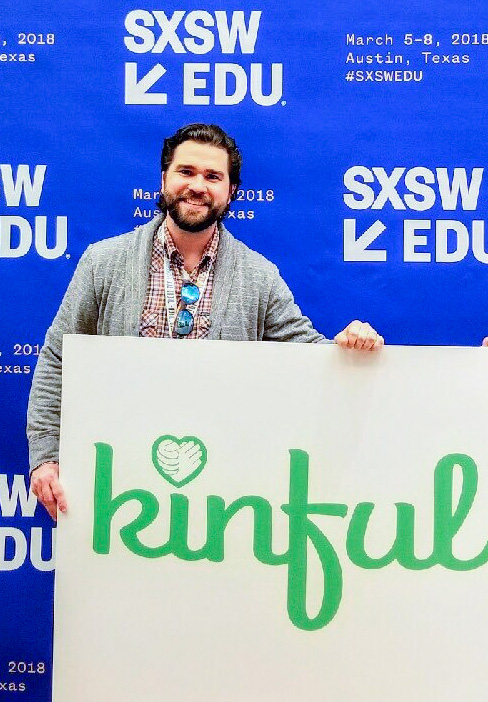
For Sam Williamson ('12 M.A.), the joy of creativity is more about the process than the product. As associate director of UNT's High School Career Connect and co-founder of Kinful, a virtual reality curriculum for social-emotional learning, Williamson is helping lead UNT's charge toward a more caring, creative and innovative future.
After studying art and education at the University of Texas, Williamson traveled to West Africa with the Peace Corps, where he helped build a mentoring program for local students.
"The Peace Corps was the first time I truly understood that I couldn't do everything myself," Williamson says. "If I didn't focus on replacing myself in all capacities, it probably wouldn't last after I left."
When he returned to the U.S. in 2009, Williamson settled in his hometown of Denton while contemplating his next move. His Denton roots go deep: His father, Tim Williamson ('85 M.S.), studied industrial technology, and his mother, Celia Williamson, worked for UNT for more than 24 years before retiring as vice provost for educational innovation. His grandfather Merril Delwin Williamson taught industrial design and his great-grandfather Elmer began studying at UNT in 1912, a century before Sam would cross the stage with one of UNT's first master's degrees in innovation studies.
"The professors took a different approach to research," he says. "They taught us how to search for voids, which is where innovation lives."
As part of his graduate research on creating more relevant and engaging curriculum, Williamson reached out to Dallas educational nonprofit Big Thought. The group connected him with local middle schools and, upon graduation, offered him a position as an instructional specialist.